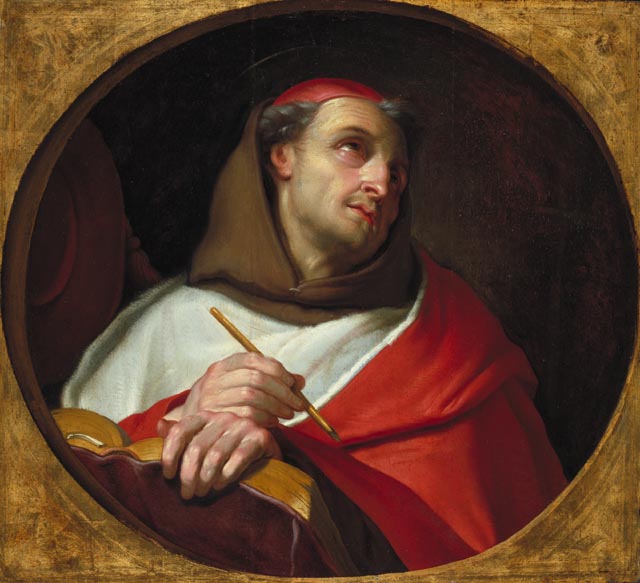St. Bonaventure was born in Bagnorea in Tuscany, Italy, around the year 1221. As a child, he was cured of a dangerous illness by the intercession of St. Francis of Assisi, and went on to join the Franciscan Order of Friars Minor in 1243.
Bonaventure was sent to Paris to complete his studies, where he became good friends with St. Thomas Aquinas and St. Louis, King of France.
In 1257, Bonaventure was chosen as the superior of the Friars Minor. He held this position for 17 years, bringing peace and order to a brotherhood that had recently undergone a period of extraordinary expansion. Because of his impact, Bonaventure is sometimes called the second founder of the Franciscans.
As superior, Bonaventure worked to restore a spirit of unity, quelling internal dissension and proposing a unified, collected text that regulated the daily life of the Friars Minor. This document was ratified in 1260.
Over the next few years, Bonaventure compiled documents and testimonies about the life of St. Francis of Assisi, and wrote a biography that was adapted as the official version in 1263. He also wrote many mystical and ascetically treatises, including “The Soul’s Journey into God.”
In 1273, Pope Gregory X appointed Bonaventure as Cardinal and Bishop of Albano, and asked him to help prepare the Second Ecumenical Council of Lyons, which aimed to re-establish communion between the Latin and Greek Churches.
Although Bonaventure worked on the council preparation, he never saw the fulfillment. He died on July 15, 1274, while the council was still in session.
Pope Sixtus IV canonized St. Bonaventure in 1482. He is known as the Seraphic Doctor of the Church, and is remembered for his great contributions to theology and philosophy.

